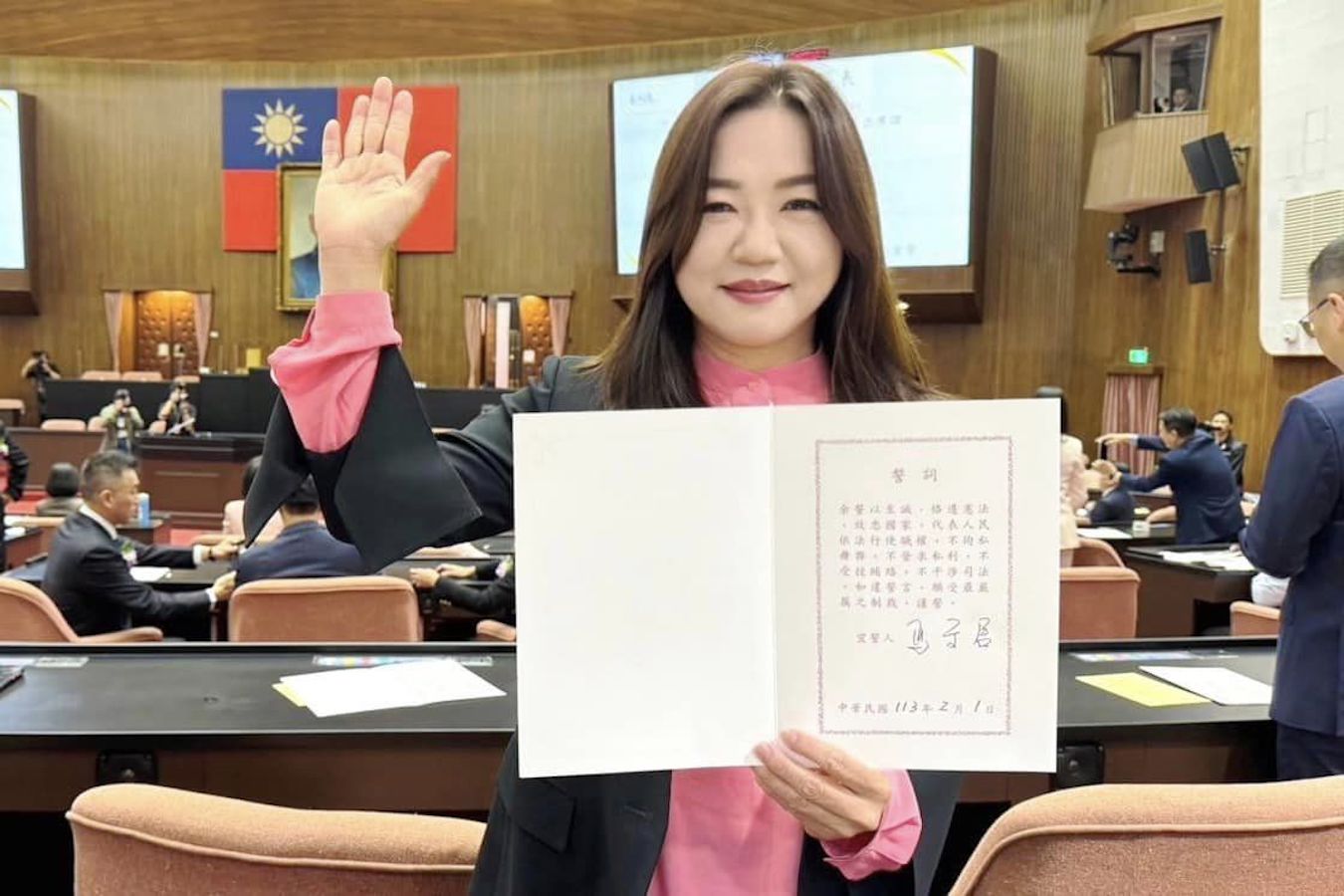by Brian Hioe
語言:
English
Photo Credit: Wang Yu Ching/Presidential Office/Flickr/CC BY 2.0 DEED
FORMER TPP SPOKESPERSON Ma Chih-wei faces charges over accepting funding from the Chinese government for an independent legislative run. Prosecutors recommended yesterday that Ma face three years and eight months in jail, as well as a two million NTD fine. This is a hefty fine and prison term for a country in which spying charges have historically been treated with lighter sentences than for cannabis charges.
The TPP tried to distance itself from Ma after the allegations broke out in January. This took place shortly before elections took place on January 13th, at a time in which the TPP was trying to moderate its cross-strait stances. The TPP stressed that Ma had already been expelled from the party over ethics violations.
Indeed, the TPP tried to dial back a cross-strait stance that included presidential candidate and party chair Ko Wen-je expressing support for reviving the controversial Cross-Strait Services Trade Agreement that was opposed by the 2014 Sunflower Movement and building a bridge between Kinmen and Xiamen. Ko stated late in campaigning that he intended to primarily maintain the cross-strait policy of Tsai Ing-wen.
Ma was accused of receiving 1.06 million NT in election funds from Chinese operatives, receiving this in exchange for information on government agencies, including confidential information. Ma traveled to China between April and November last year on multiple occasions, as subsidized by the CCP, during which she received funds in cash from her CCP contact, with some funds funneled through a foundation. This was used to pay for campaign advertising.
However, later on, payments from the Chinese government took place through cryptocurrency, to make it easier to transfer funds. This is the first case of a political candidate in Taiwan receiving funding from the Chinese government through cryptocurrency.
Still, the issue of links to the Chinese government continues to plague the pan-Blue camp more broadly. In a similar timeframe, the KMT put forward Ma Wen-chun as its choice for the co-chair of the defense committee of the Legislative Yuan.
 Ma Wen-chun. Photo credit: Ma Wen-chun/Facebook
Ma Wen-chun. Photo credit: Ma Wen-chun/Facebook
Ma is a controversial pick, due to having filed 135 motions to suspend or cut defense spending in the last legislative session. To this extent, Ma is accused of having attempted to sabotage Taiwan’s domestic submarine program by leaking information to the Chinese and South Korean governments.
With regards to leaking information to the Chinese government, Ma was accused of attempting to curry favor with the CCP. With regards to leaking information to the South Korean government, Ma’s actions were accused of leading to the arrest of South Korean engineers who had sought to assist Taiwan with acquiring necessary technology for submarines that it currently does not have.
Taiwan already has difficulties acquiring military technologies because of concerns that such technology would then be leaked to China. Ma’s actions, then, are criticized as making it all the more difficult for Taiwan to obtain such technologies in the future.
It proves telling of the KMT’s priorities at this juncture–at a time that the party leadership has sought to claim that the party is seeking to rebuild its relationship with the US in terms of cooperation–that it has decided to make Ma the public face of its defense policy in this way. US-skeptic discourse, casting doubt on the reliability of the US as an ally in wartime, has been on the rise within the party in recent years and Ma’s stances reflect this. But this would not be the first time that KMT politicians appointed to defense-related positions in the legislature have been accused of links to China, as observed with legislator Wu Sz-huai.
Wu is a former general who had previously traveled to China to meet with Chinese officials, making public statements advising the Chinese military on how it could defeat the Taiwanese military in warfare. As such, there are those who would consider Wu’s actions traitorous. Nevertheless, this did not prevent the KMT from putting forward Wu as a party list candidate in the past.
Indeed, though Wu is no longer a legislator, evidently the KMT has not deviated course when it comes to appointing individuals accused of questionable ties with China to the legislature. The wave of public criticism regarding Ma has not prevented the KMT from nominating her for high positions related to defense, even when the KMT itself sought to moderate its cross-strait stances ahead of elections. It is to be seen if this will prove an indicator of how the KMT behaves in the upcoming legislation, potentially acting to try and sink defense budgets or other efforts to boost Taiwan’s military readiness, claiming that preparing for conflict to prevent the possibility of conflict, in fact, increases the odds of war.

